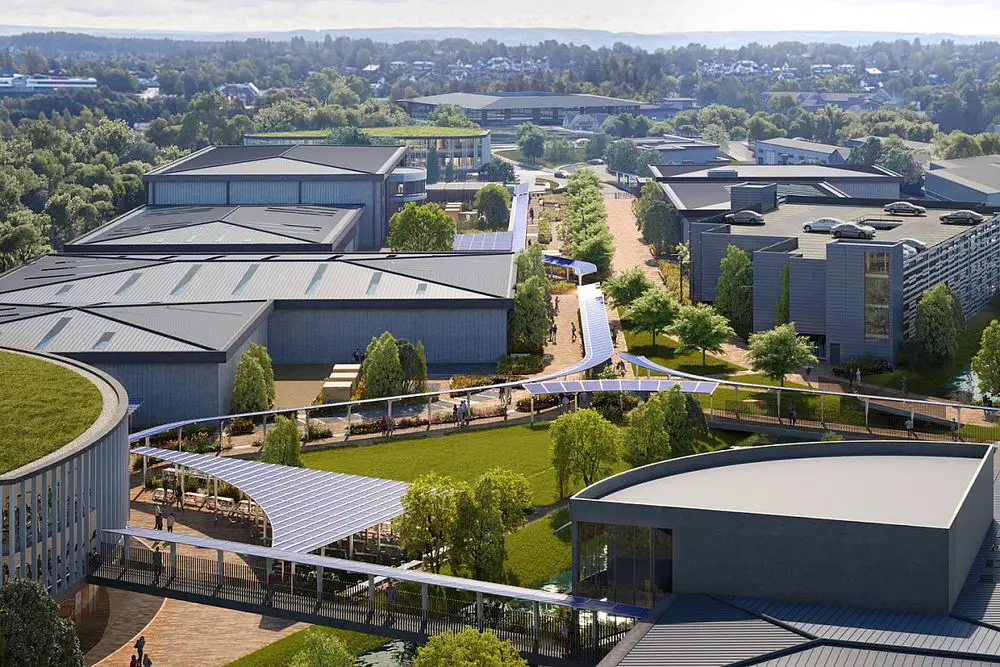The Brackley campus is the home of the Mercedes F1 team, spread over an area of 60,000 square metres
Mercedes have revealed their plans of a £70 million renovation of their Formula 1 factory in Brackley. The Brackley campus is located in the Northwest of London and has been the home of Mercedes since 2010. The site provides cutting-edge facilities for the design, development, manufacturing, assembly and operation of Championship-winning Formula One cars. It is only set to get bigger and better – here’s what the plan for the future looks like.

Some of the key objectives of this program include the creation of a new Health and Well-being centre; a gateway Marketing building enabling further expansion of the design office facilities and ensuring that new buildings will be net zero in operation, powered by 100% renewable energy.
The program also aims to further improve the Brackley Applied Science division of the team which provides top-notch engineering services combining world-class talent and high-performance culture with cutting-edge technical capability. In the words of Mercedes CEO, Toto Wolff, Brackley will soon be a ‘state-of-the-art’ campus resembling Silicon Valley.
Mercedes are in tune with F1’s Mission Net Zero Carbon by 2030
One of the primary objectives of the Mercedes F1 team is to reduce carbon emissions by developing 100% renewable energy, thereby creating an eco-friendly environment. This is completely in tune with F1’s mission of reducing carbon emissions to ‘Zero’ by 2030. F1 has already begun using 100% renewable energy to power its offices and achieved the FIA’s three star Sustainability Management accreditation. It has also changed the design of its freight containers, allowing it to use more efficient aircraft, and is looking into further carbon reductions it can achieve through its use of air, sea and land freight.
F1 is also developing a sustainable fuel, which is set to be introduced to the cars in 2026 when a new set of Power Unit regulations come into play. Although F1 fuel accounts for just 1 per cent of the sport’s emissions, it believes that a sustainable fuel can have a major impact on worldwide, everyday transport. The sport will aim to share the carbon reduction activities from across the community to ensure that all parties involved recognise the push to achieve its Net Zero goals.
More Formula One News
- Lewis Hamilton doesn’t support IOC’s decision on Black Lives Matter gear during Olympics
- Max Verstappen left surprised as he reaches 100 race milestone with Red Bull
- Damon Hill left in awe after Lewis Hamilton racks up 100 poles in F1 ahead of 2021 Spanish GP
Follow our dedicated Formula One page for instant Formula One news and updates
